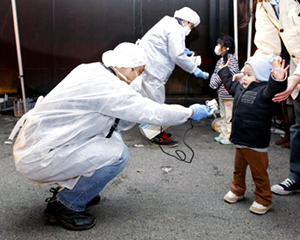
On the anniversary of the Fukushima nuclear disaster, here are the facts
We have analyzed the Fukushima disaster, seeking to explain the accident, and in particular the current status of the reactors, the human health impacts, the environmental contamination and the effect of the radioactive fallout on agriculture and fisheries, and the implications for the future of nuclear power in Japan and elsewhere. The following fact sheets provide an overview of a human and ecological tragedy that is likely to be the most expensive accident in history.
The immediate consequences of the accident are experienced daily by the people of Japan, and only in the longer term will the full impact of the accident become known, but the lessons of the accident apply globally and for all societies operating nuclear power plants.
Here in the U.S., we can not help but wonder why our own government appears so resistant to learning the lessons of Fukushima. While the Japanese government has closed 48 nuclear reactors in the aftermath of the disaster, fearing that they can not guarantee their safe operation, our own government has not closed a single reactor, nor has it required any immediate or urgent safety upgrades, despite the fact that our reactor designs have the same flaws as those at Fukushima.
Fact sheets
Fukushima-Daiichi nuclear accident: Summary
Fukushima-Daiichi nuclear accident: Current status and lessons
Fukushima-Daiichi nuclear accident: Human health impact
Fukushima-Daiichi nuclear accident: Environmental contamination
Fukushima-Daiichi nuclear accident: Impact on agriculture and fisheries
Fukushima-Daiichi nuclear accident: The future of nuclear power
Photo credit: Kim Kyung Hoon/Reuters
Related Posts
Ways to Support Our Work

Read Latest News
Stay informed and inspired. Read our latest press releases to see how we’re making a difference for the planet.

See Our Impact
See the real wins your support made possible. Read about the campaign wins we’ve fought for and won together.

Donate Today
Help power change. It takes support from environmental champions like you to build a more healthy and just world.